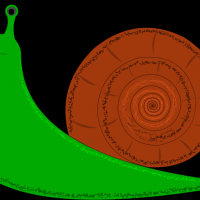讯息: 17
语言: English
eojeff (显示个人资料) 2013年2月12日上午2:49:20
What about city/state or regional demonyms? Such as New Yorker, Michigander, New Englander and the like? Would one say Nova Anglano for "New Englander?" Is this the correct way to express a non-nation state demonym in Esperanto?
Amike,
Jeff
erinja (显示个人资料) 2013年2月12日上午3:07:30
We use -an- forms for the names of people from a city or state.
novjorkano (a New Yorker), marilandano (a Marylander), etc.
Note that unlike in English, Esperanto doesn't generally capitalize these. We capitalize, usually, only the name of the place, but not other words derived from it.
So a baltimorano comes from Baltimoro.
Breto (显示个人资料) 2013年2月17日下午4:09:40
(As a side note, sometimes in studying Esperanto, I miss having just a little irregularity. In English, the state is called Indiana, but its inhabitants are Hoosiers. No one knows why, and I have to admit, I enjoy that bizarre, apparently etymologyless term. Too bad I have to be indianaano rather than "huĵro" (or whatever) in Esperanto. It's just so...predictable, and not what I was brought up with. Ah well, c'est la vie.)
RiotNrrd (显示个人资料) 2013年2月17日下午9:03:14

erinja (显示个人资料) 2013年2月18日上午12:58:37
It is a nice aspect of Esperanto that you don't have to memorize irregular names for people, even though you do lose a little flavor that way.
RiotNrrd (显示个人资料) 2013年2月18日上午2:10:08
Calling yourself something, and having the general populace know what that something means, are two rather different things.
But I would certainly not be one to tell you that you can't call yourself anything you darn well please.

On the other hand, "hoosier" is not a widely-recognized name even in the US. If you asked a bunch of random Oregonians (for example) what a Hoosier is, some would probably know. But many probably wouldn't. Could be it's just not the sort of thing that comes up a lot in conversation outside of Indiana. More of a "family name", so to speak. The only reason I recognize it is because Kurt Vonnegut went on about the term in one of his books. "Cat's Cradle", I think it was. He used it as a funny example of something or other germane to the plotline - I actually forget the details at this point; it's been many years.
Breto (显示个人资料) 2013年2月23日上午3:20:57
I figured "huĵero" would get weird looks in Esperanto, but I kinda assumed "Hoosier" would at least be recognized in English....
brodicius (显示个人资料) 2013年2月23日上午4:08:00
orthohawk (显示个人资料) 2013年2月23日下午1:13:24
Breto:Really? Huh, I could've sworn "Hoosier" was more widely known than that (and "Indianan" just sounds bizarre to me;I can barely even read it aloud). I guess I need to be more aware of my language bias.I would suspect any sports fan (US that is) would know what Hoosier means,
I figured "huĵero" would get weird looks in Esperanto, but I kinda assumed "Hoosier" would at least be recognized in English....

erinja (显示个人资料) 2013年2月23日下午11:49:22


